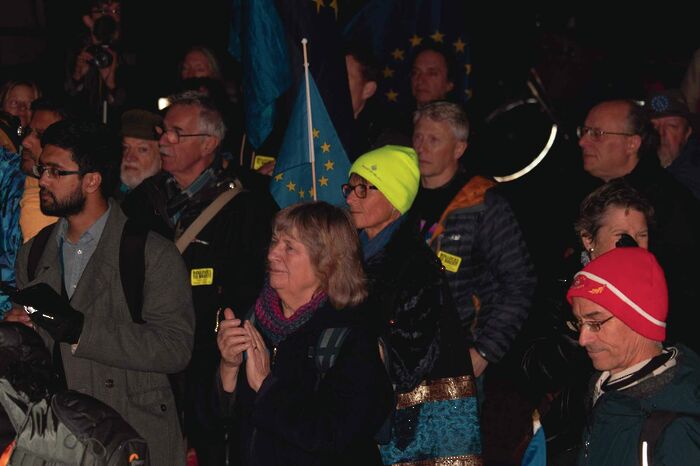Less than half of EU nationals in Cambridge offered permanent residency
Varsity spoke to EU students about applying for settled status and the impact of Brexit on the UK’s research reputation

Less than half of all EU nationals living in Cambridge have so far been offered permanent residency in the UK, according to statistics published by the Home Office last week.
Of the 10,380 EU nationals who applied for permanent residency, only 4,720 have been offered settled status. 4,140 have been granted pre-settled status, which only gives the temporary right to stay in the UK. Another 1,470 EU nationals living in Cambridge are still waiting for a final decision to be made.
The largest numbers of applications in Cambridge were made by Italian (1,710), Polish (1,330), and Spanish (1,240) nationals, which broadly reflected UK trends. Nationally, the highest number of applications were made by Polish nationals, with applications from Italian and Spanish nationals the third and fifth most common. In Cambridge, 790 of the applicants for settled status were under 18 years of age.
The percentage of concluded applications that resulted in settled status in Cambridge, 52.9%, is lower than national averages, where 61% of 1.5 million concluded applications resulted in settled status. However, while 46.4% of concluded applications in Cambridge resulted in pre-settled status, the national figure is lower, at 38%.
This may reflect the city’s high volume of university students, many of whom will not have lived in the UK for at least five years, which is the length of time required to qualify for settled status.
Settled status has been granted in England (61%) at a lower rate than in Scotland, Wales and Northern Ireland (65%, 67%, and 69% respectively).
The Liberal Democrat candidate for Cambridge Rod Cantrill commented, “Too many EU nationals in Cambridge are deeply anxious about their right to stay. Many of them fill vital roles in our health service and our schools. It’s disgraceful for the Conservative government to leave them in legal limbo like this.
“Families and children must not be made to live under a cloud of uncertainty any longer.”
Speaking to Varsity about the figures, few Cambridge students expressed strong concerns about their own status in the UK. EU students currently studying at the university are guaranteed that they can finish their education on the same terms they started on.
One EU undergraduate, who asked to remain anonymous, noted that “Brexit will have a real and worrying impact on working class Polish and Hungarian kitchen staff.”
Edwin Balani, fourth-year Engineering student from Magdalene, highlighted the strange position for individuals who have lived in the UK all their lives but have to apply for settled status. Balani commented, “I wouldn’t consider myself a foreign student, I’ve lived here since I was one. But obviously I need to get settled status”.
Echoing a common sentiment among the undergraduate students that Varsity spoke to, he said that he “hadn’t applied yet, mainly out of laziness and out of principle or hope that Brexit won’t go ahead.”
Hungarian national Olivér Janzen, a PhD candidate in pure mathematics at Trinity College, has already been granted settled status, having done his undergraduate and master’s degrees at Cambridge. He said he would be applying for citizenship and is hoping to continue research at the university.
Despite this, Janzen commented that Brexit, “certainly makes the UK less attractive” for researchers.
He explained, “it probably makes it harder for researchers from the EU to come to the UK, so even if someone does come here to work, he or she may find that there are fewer colleagues to collaborate with. It’s also not clear to me whether the UK will be able to use the research funds of the EU.
“Finally,” he added, “if the number of EU citizens living in the UK drops, that just makes the country a less appealing place for me. I have several very good friends who are not British, and who experience similar cultural and language difficulties. Losing some of these friends would be unfortunate.”
 News / Eight Cambridge researchers awarded €17m in ERC research grants27 December 2025
News / Eight Cambridge researchers awarded €17m in ERC research grants27 December 2025 News / Clare Hall spent over £500k opposing busway 24 December 2025
News / Clare Hall spent over £500k opposing busway 24 December 2025 Comment / League tables do more harm than good26 December 2025
Comment / League tables do more harm than good26 December 2025 Comment / The ‘class’ of Cambridge24 December 2025
Comment / The ‘class’ of Cambridge24 December 2025 News / Caius mourns its tree-mendous loss23 December 2025
News / Caius mourns its tree-mendous loss23 December 2025









